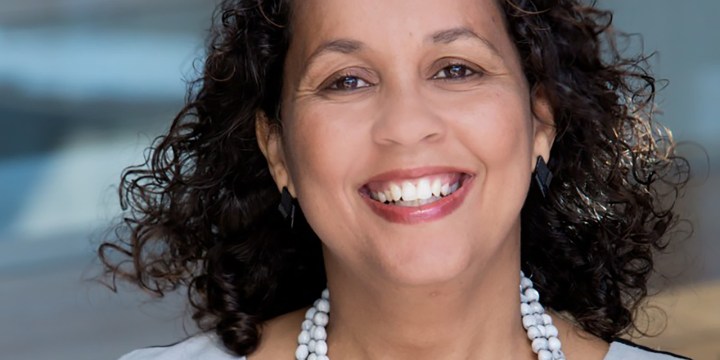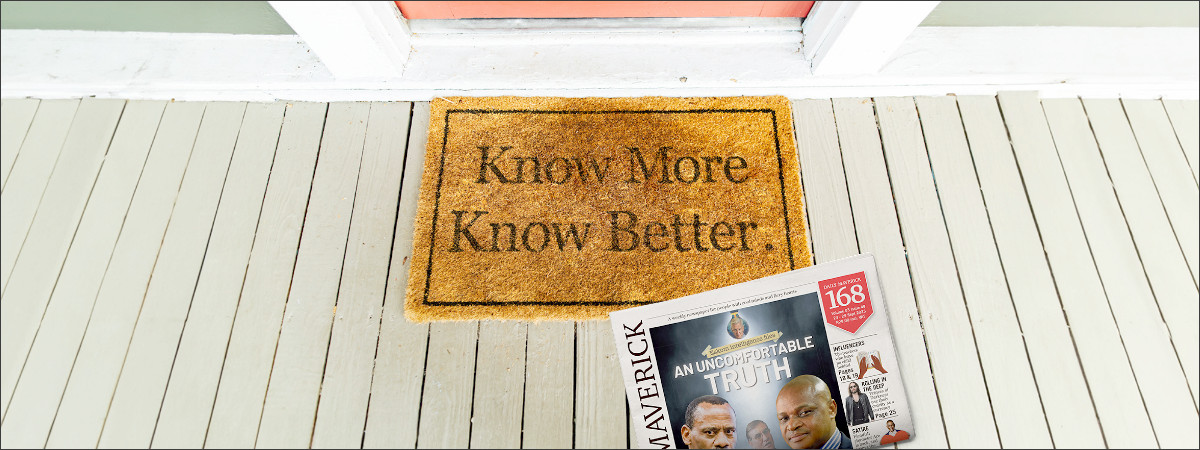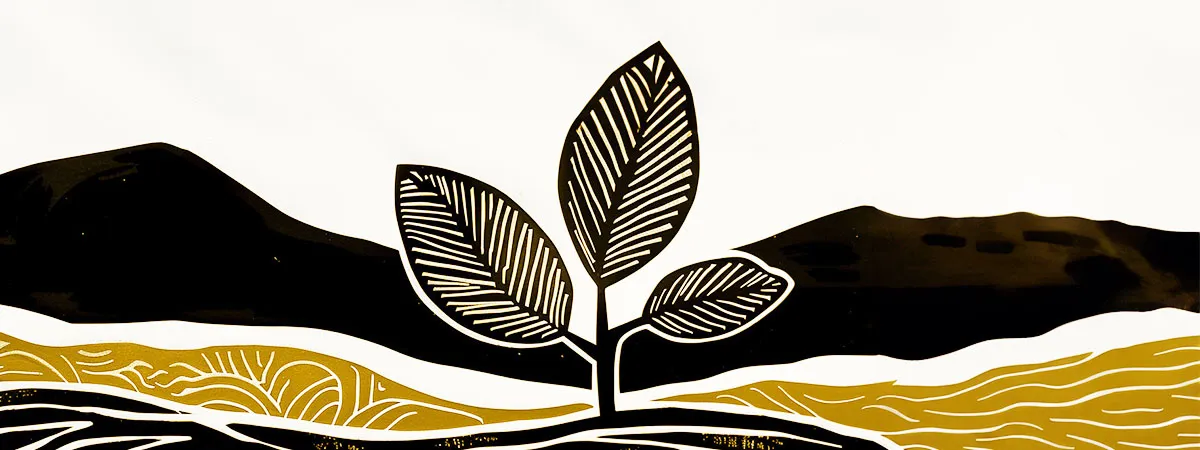STRUGGLE UNENDING OP-ED
Unchecked violence crushes peaceful protest — yet an angry, hurt and fragile black woman must be heard

Anthea Houston attended a protest for Palestine in Cape Town where a man attacked her and beat her up. The experience has set her back, but it has also strengthened her resolve to speak out and fight all violence.
I awoke tired and considered a lie-in, but the heartbreaking images of children in Gaza haunted me. As an anti-apartheid activist, I knew that pressure from the international community contributed to South Africa’s regime change. Acting in solidarity with Palestine’s oppressed people was important to me and became urgent by mid-October as the Israelis escalated the slaughter of defenceless people.
Conscience pricked, I dragged myself to a pro-Palestine demonstration occurring along the Cape Town Marathon route. A small comfort was knowing that I could support my friends who were in the race that day.
The marathon runners’ grit filled my heart with joy. Their determination was a metaphor for the nearly eight decades of Palestinian resistance.
Read more in Daily Maverick: Middle East crisis news hub
Late morning, with only the last stragglers left in the race, I began heading home. The demonstration ended, so I returned my poster to the picket organisers. Carrying only my purse, I donned an Arab keffiyeh around my neck, a symbol of support for a free Palestine.
I stepped forward to cross the road. Within seconds, I was faced with a runner walking slowly towards me. We exchanged no words or gestures. Without warning, he raised both his fists and beat me to the ground.
Read more in Daily Maverick: Cape Town Marathon runner assaults Communicare CEO at pro-Palestine roadside picket
Falling instantly, I had no time to stabilise myself. He pounded me down with such force that my body hit the ground, then ricocheted off the tar before hitting it again. The sound of my head bashing the hot tar was heard by everyone nearby.
Without saying anything, he callously stepped over me and continued walking.
The attack was so brutal that I still had a painful little bump on my head four months later. Worse still, a host of concussion-related symptoms were also still plaguing me.
As I recuperated from the traumatic brain injury, I prayed my body would be as resilient as those of the marathon runners. I worried about the impact of persistent reduced mental capacity on my livelihood. Above all, I kept thinking about my unknown attacker.
The face of this young white man with a small mouth and wearing reflector sunglasses was engraved in my mind. I ruminated about the kind of man who would, arrogantly and unprovoked, beat a woman he didn’t know in a public place. I felt sure he was a misogynist, racist Zionist. Undoubtedly, he was cruel, dangerous and savage, and considered himself untouchable.
Three weeks after the vicious attack, the police notified me in a brief, unceremonious email that they would not prosecute him. No reason was offered for their decision. The pronouncement was another assault. How could the attacker face no consequences for violating my body when so many had witnessed the incident?
Sickened for days, I felt invisible to the justice system. I doubted my barbaric attacker would regulate himself if he escaped accountability for his stomach-churning conduct.
Eventually, when I pulled myself together, I consulted an attorney. His words were like another blow to my head. “You’re not angry, you look fine and you don’t seem injured. You would be a nightmare on the stand.”
I listened and heard that I didn’t fit his stereotype of the injured victim: visibly hurt, fragile and angry.
It wasn’t that I didn’t feel angry, hurt and fragile. It was that this part of me only existed in the private rooms of my life — alone in my bedroom, within the safety of my innermost circle, and only on rare occasions.
I wept again for days, and was angry for longer. The attorney challenged me to reveal my true emotions. He didn’t know what he was asking of me. He had never been a black girl on the Cape Flats, or a mother, or a woman in a male-dominated industry. He didn’t know how hard I had worked to leave behind the justifiably angry, hurt and fragile black girl that I once was.
Read more in Daily Maverick: Gender-based violence is a war against the humanity, dignity and equality of women
He didn’t know how thoroughly I had trained to sit in front of him with dignity, composure and a positive mindset, despite everything happening to me. He didn’t know that anything in my life appearing like success had been built by reining in that angry, hurt and fragile girl. He couldn’t know how personal the theory of the triple oppression of women was to me.
He couldn’t know that my grandmother was murdered by her husband, and how this motivated my father to teach me to expect equality in relationships and stand up against abusive men.
He couldn’t know how 10 years of heart monitoring in a public teaching hospital throughout puberty had taught me to disassociate from my body while young male medical interns focused on my chest.
He couldn’t know how, as a teenager, counsellors had helped me master the art of emotional detachment so that I could be happy despite living with an active addict.
He couldn’t know that, as a student activist fighting the apartheid regime, I learnt not to show the oppressors any sign of fear. He couldn’t know how a 14-year-old girl steeled herself protesting in the streets and, while imprisoned, discovered the depths of her courage keeping silent under interrogation by specialised security forces.
He couldn’t know how spending my early twenties in the women’s movement prepared me to recognise and call out misogyny, and to demonstrate the capability of women.
He couldn’t know how I, as a black female professional in a white male industry, had learned to suppress anything regarded as weakness by setting aside my feelings. He couldn’t know how I braced myself to face micro and overt aggressions.
Nor could he know how I chose my battles, knowing a price would always be paid for speaking up in environments where women are rendered invisible.
He couldn’t know that, as a chief executive, I had cultivated the patience to suspend judgment until sufficient facts were gathered and to channel emotion into action. He couldn’t know that leading had honed my ability to remain calm in any storm and to maintain control, especially in turbulent times. He couldn’t know how becoming a mother had unlocked a superhuman capacity to play my role each day without revealing the personal challenges being endured.
He couldn’t know how, while I was growing up on the Cape Flats, the expression “dala what you must” was actually a rallying call to summon strength and an acknowledgement that, drawing on faith, we could overcome anything.
My bespoke cocktail of life experience enabled me to sit calmly smiling in front of him while still feeling deeply tortured, confounded and aggrieved by my circumstance.
I had spent my life training to be a strong black woman and to fight back as strong women do: dispassionately, with dignity, composure and a clear mind. I had thrived by quelling my rage.
Processing the attorney’s feedback, I recognised that, having been brutally and unjustly attacked, my anger should not be squelched. To “dala” this time would mean speaking out as the angry, hurt and fragile black woman. The situation was an invitation to unmute her.
Though silencing her had protected me for decades, it would not secure justice for me. I reached deep inside to find her and prayed that my world wouldn’t collapse as I plucked at its foundation. DM
Anthea Houston’s alleged attacker appeared in court last week.
This story first appeared in our weekly Daily Maverick 168 newspaper, which is available countrywide for R29.






Respect.
Anthea Houston I am so sorry that this happened to you. The depth and dignity of your response is both heartwarming and heartbreaking. May you continue to live with courage and compassion and thrive in the fullness of your being.